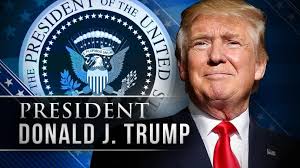
Though I had a number of things to say in response, I decided it was more sensible to avoid upsetting her further and instead state them in writing. Here goes:
First, I would explain that I had held a similar position to hers myself and in fact published that view, writing as follows:
July 22, 2015: In reference to candidate Trump’s campaign claim that John McCain was not a hero, I said: “Despite admirable qualities such as the ability to solve problems and make decisions, and the courage to speak his mind forthrightly, I believe he lacks two more important attributes of a leader—the habit of respecting those he disagrees with and the humility to acknowledge his mistakes and apologize when appropriate. Mr. Trump has just done me the favor of narrowing my choices by one.”
Next, I would point out to my friend that, though I voted for another candidate in the primary, when Trump won the nomination and choice was between him and Clinton, I realized a different assessment was in order. I then wrote as follows:
June 27, 2016: “The problem is how do voters choose when both the Republican and Democratic candidates have provided understandable reasons NOT to vote for them. {The answer, I said, was to address four questions:] Who is more likely to restore the size, functionality, and preparedness of the military? Who is more likely to correct the problems of Obamacare? Who is more likely to respond decisively and effectively to the threat of international terrorism? Who is more likely to nominate to the Supreme Court individuals who will follow our Constitution rather than change it? [I then concluded] The answers to these questions should be obvious. The one who is likely to change what needs changing and leave alone what does not (i.e., the Constitution) is Donald Trump. Wise voters will support him, even if they have to hold their noses to do so.”
Four months after I wrote the latter essay, I voted for Donald Trump in the presidential election. Since then the correctness of that choice has been confirmed by what he has accomplished for the American people despite continuing attempts to obstruct his initiatives and to impeach him, attempts made by Democrats, joined by many establishment Republicans, and supported by a majority of news organizations. Considering the weight of that burden, his achievements in office have been amazing. Without question, I will vote for him in the upcoming election.
I would point out to my friend that my change from opposing to supporting President Trump does not mean that I approve of everything he says or tweets. Not at all. At times I think, “I wish his words had been understated rather than overstated, humble rather than self-congratulatory, kind rather than insulting.” At other times I think, “It would have been better for him to have remained completely silent on this one.”
Finally, I would explain that my conscience supported each judgment on the basis of the information available at the time. The difference was that considerably more information was available the second time.
My support for the President means simply that I have applied two fundamental principles—that deeds are more important than words, and promises are meant to be kept. We have it on the very best authority, Jesus Himself, that “Not everyone who says Lord, Lord shall enter into the kingdom of heaven, but he who does the will of my father.” I believe President Trump is meeting that standard.
Copyright © 2020 by Vincent Ryan Ruggiero. All rights reserved



